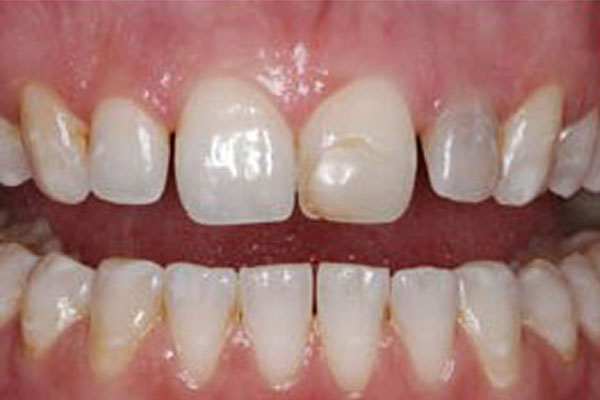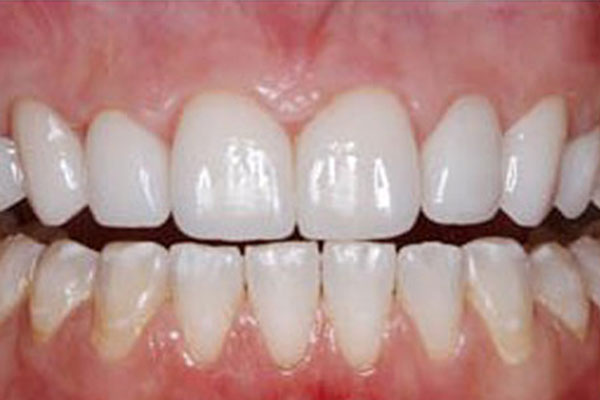Dental emergencies can happen at any time, and they can be very painful and distressing. It’s crucial to see your dentist as soon as possible and know how to handle common dental emergencies to keep pain and damage at a minimum.
Why Choose Dr. Alla Agamov?
Sharon, MA emergency dentist, Dr. Alla Agamov provides prompt and effective emergency dentistry services as well as advice on how to handle emergency dental situations.

What Qualifies as a Dental Emergency?
A dental emergency is any situation that requires immediate attention from a dentist to relieve severe pain, stop bleeding, or save a tooth. Some examples of dental emergencies include:
- Severe toothache
- Knocked-out or fractured teeth
- Excessive bleeding from the mouth
- Abscesses or infections
- Severe swelling in the gums or face
It’s important to seek emergency dentistry services as soon as possible to prevent further damage or infection.
How to Handle Common Dental Emergencies
Toothache
If you have a toothache, rinse your mouth with warm water and floss gently to remove any food debris that might be causing the pain. If the pain persists, take over-the-counter pain medication such as acetaminophen or ibuprofen. Do not place aspirin directly on the affected tooth or gum tissue as it can cause a chemical burn. Apply a cold compress to the cheek or jaw area to reduce swelling and pain.
Knocked-out Tooth
If a tooth has been knocked out, try to retrieve it and rinse it with water. Do not touch the root surface or remove any attached tissues. If possible, gently reinsert the tooth into the socket and hold it in place by biting down on a clean piece of cloth. If you can’t reinsert the tooth, put it in a container with milk or saliva and bring it with you to the dentist. Time is of the essence in this situation, so it’s important to see a dentist as soon as possible.
Broken or Chipped Tooth
If a tooth is broken or chipped, rinse your mouth with warm water and apply a cold compress to the cheek or jaw area to reduce swelling and pain. If there’s bleeding, apply pressure with a clean piece of cloth. Save any broken pieces of the tooth and bring them with you to the dentist.
Lost Filling or Crown
If a filling or crown has fallen out, rinse your mouth with warm water and try to replace the restoration using over-the-counter dental cement or toothpaste. Avoid eating or drinking until you see a dentist, as the exposed tooth can be sensitive to temperature changes.
Soft Tissue Injury
To handle a soft tissue injury, start by rinsing your mouth with warm salt water to clean the area and reduce swelling. Apply a cold compress to the outside of the mouth near the injury to reduce pain and swelling. Finally, seek immediate medical attention from your dentist or a doctor if your dentist isn’t available.
Abscessed Tooth
An abscessed tooth is a serious dental emergency that requires prompt treatment. Symptoms include severe pain, swelling, and pus discharge. Rinse your mouth with warm salt water and apply a cold compress to the cheek or jaw area to reduce swelling and pain. Take over-the-counter pain medication and see a dentist as soon as possible.
Broken Jaw
If you suspect that you have a broken jaw, it’s important to seek emergency dental care right away. Keep calm and try to limit the movement of your head and jaw. Apply a cold compress to reduce swelling and alleviate pain. If there’s bleeding, apply pressure with a clean cloth or gauze. Contact Dr. Agamov for further assistance as soon as you can.
How to Prevent Dental Emergencies
Preventing dental emergencies whenever possible is essential for maintaining good oral health. Here are some tips for preventing dental emergencies:
- Brush and Floss Regularly: Brush your teeth twice a day for two minutes and floss at least once a day to remove plaque and bacteria that can cause tooth decay and gum disease.
- Wear a Mouthguard: If you play contact sports, wear a mouthguard to protect your teeth from injury.
- Avoid Chewing Hard Foods: Avoid chewing hard foods such as ice, popcorn kernels, and hard candy, which can chip or break your teeth.
- Don’t Use Your Teeth as Tools: Don’t use your teeth to open packages, cut tape, or rip tags. This can damage your teeth and increase the risk of a dental emergency.
- Visit Your Dentist Regularly: Visit your dentist for regular checkups and cleanings. Your dentist can detect and treat any dental issues before they become a dental emergency.
- Avoid Tobacco Products and Limit Alcohol: Tobacco and alcohol often inhibit your body’s ability to heal, exacerbating any oral injury you may have or receive.
- Eat a Healthy Diet: A healthy diet rich in vitamins and minerals can help prevent tooth decay and gum disease.
- Address Dental Issues Promptly: If you have a dental issue such as a cavity or cracked tooth, don’t wait to have it addressed. The longer you wait, the more likely the issue will become worse and require more extensive treatment.

I can’t say enough good about Dr.Agamov! She is extremely knowledgeable and extremely kind. I am very very happy with the results of my visit. She and her staff are wonderful! I highly recommend!
-Wendy D.

FAQ
What should I do if I have a dental emergency after hours?
If you have a dental emergency after hours, contact your emergency dentist and leave a message. A member of their team will get back to you as soon as possible to provide you with the care you need. In the meantime, visit the emergency room so a doctor can help you keep the injury mostly undisturbed and the damage to a minimum.
How long can I wait to seek treatment for a dental emergency?
It’s important to seek prompt treatment for a dental emergency to prevent further damage and alleviate pain. Waiting too long can result in more extensive and costly dental treatments.
What should I do if I accidentally swallow a dental crown?
Contact your dentist immediately if you accidentally swallow a dental crown. They can advise you on the best course of action, which may include monitoring your symptoms or arranging for an X-ray to locate the crown.
How much do emergency dentistry services cost?
The cost of emergency dental care varies depending on the severity of the issue and the treatment required. Your emergency dentist’s office can provide you with an estimate of the cost and inform you of any in-office financing options before any treatment is done. You should also ask your insurance provider if they can cover the costs of your treatment as soon as you can.
Call Dr. Agamov for Fast Emergency Dentistry Services
Don’t wait until it’s too late, Dr. Agamov and her experienced team are ready to provide you with the urgent care you need. Conveniently located in Sharon, MA, we offer flexible scheduling and personalized treatment options to ensure you receive the best care possible as soon as possible. Trust us to get you back to your daily routine with a healthy and confident smile.
click the button below to schedule an appointment for fast and reliable emergency dentistry services! We serve new and returning patients from Sharon and surrounding areas such as Stoughton, Foxborough, and Canton, MA.


